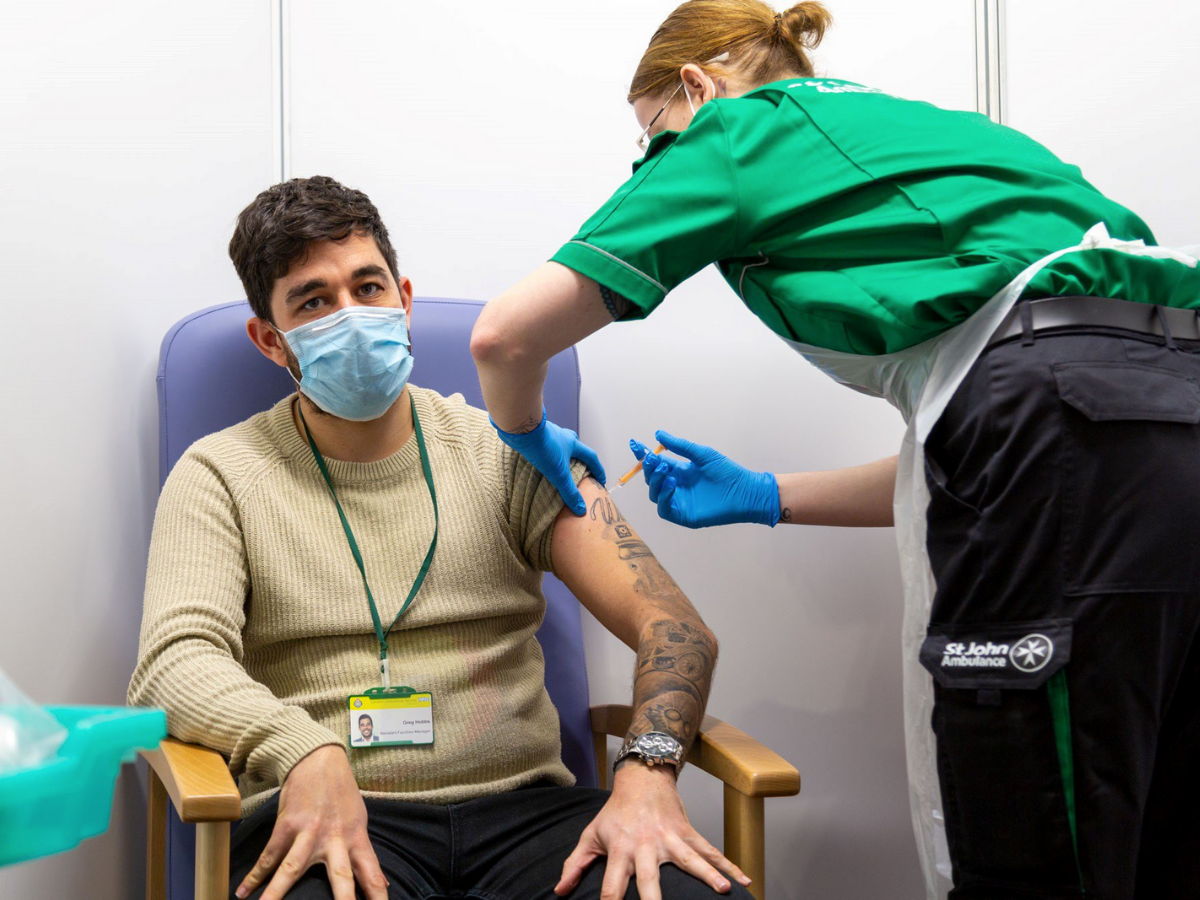More than 100,000 people donated their time to support the covid vaccine effort in 2021, delivering a total of 142 million vaccines across the UK to date. 11,000 of those volunteers have now decided to join the NHS workforce in permanent roles. Some are studying for clinical roles while others are taking up jobs to support medical teams.
Sajid Javid commented he is ‘delighted that [the] former volunteers have been inspired by their experiences to now pursue a rewarding career in the NHS, continuing to make a positive difference to people’s lives every day.’
In a time when the health service is struggling to catch up with elective backlogs and needs all hands on deck, these new staff will be an invaluable asset. However, the scale of the problems facing the NHS are far too large for 11,000 pairs of hands to manage.
NHS workforce struggles
Between September 2020 and September 2021, NHS staff left in record numbers. Burnout and PTSD from the pandemic, stagnating rates of pay, and concerns about the future of the NHS all had their parts to play. Staff are still leaving in pursuit of better work-life balance and less stressful jobs, but the pandemic has also inspired many to join the NHS.
While we may now be “living with covid”, the pandemic has not gone away. People still require hospital treatment for COVID-19 and staff are still frequently absent from work due to illness. These persistent pressures – compounded by existing staff shortages – mean that the NHS remains under great strain as staff battle to clear an elective backlog of over 6 million patients.
‘Updated analysis has found that to meet the 18-week referral target the NHS would need an extra 6,200 consultants and 25,700 nurses by the end of this parliament. This is over and above existing NHS vacancies, which recently increased to over 110,000.’
Elective surgery is not the only area suffering – A&E departments are floundering with nearly 25,000 patients waiting more than 12 hours for care in a single week in March. Despite mental health cases only making up 3% of those presenting at A&E, ‘waits for patients requiring mental health care are significantly disproportionate, with nearly twice as many waiting more than 12 hours compared with figures across all categories of patient.’
The NHS remains a very long way from normality and the staff attrition rate remains cause for concern; experienced staff are leaving in droves at a time when their expertise is needed the most. The government is focused on recruiting and retaining nurses to compensate for those leaving, and a recent report found that they are on track to deliver 50,000 more nurses in the NHS by 2024, with over 27,000 more nurses now working across the NHS.
GPs leaving the workforce
Bolstering the workforce in the early days of the pandemic was a mammoth task. Some of the solutions that were put in place were only designed to be temporary and, as they come to an end, the NHS is set to face a new series of challenges.
‘The General Medical Council (GMC) granted temporary licences to retired doctors and those who had let their registrations lapse to bolster the NHS workforce during the pandemic. Around 30,000 doctors, including 11,272 GPs, took up temporary emergency registration in spring 2020.’
If these doctors have not registered permanently by the time their emergency registration expires in September, the NHS may abruptly lose a swathe of GPs. Permanent registration is one solution to this problem but, mired in complex bureaucracy, it is not as easy as one might hope.
The BMA has called for complex applications to be streamlined so that ‘those who are appropriately qualified and wish to continue contributing are able to do so’. It is unclear how many of the 11,000 GPs who received emergency registration have since managed to register permanently, so the exact impact of this expiration remains to be seen.
On top of the expiration of emergency registrations, some GPs are choosing to leave the profession after an impossibly difficult few years on the frontlines. A recent GP work life survey conducted by the University of Manchester revealed that 12,000 GPs plan to quit direct patient care within five years – a staggering figure that is twice the number the government has promised to add to the general practice workforce by 2024.
Alongside challenges of recruitment, retention has been an immense challenge for the NHS throughout the pandemic. Widespread staff shortages are fuelling burnout in remaining staff, leading to each of these issues compounding the other with seemingly no end in sight. The addition of the 11,000 volunteer vaccinators who have decided to join the NHS on a permanent basis will help towards combating this, but it is one small drop in a very turbulent ocean.
Recommended for you

Antidepressant Prescribing at Six-Year High
More people are taking antidepressants than ever. Is this a dark sign of the times or an indication that mental health stigma is changing?

Can AI be Used to Determine Cancer Recurrence?
When cancer patients go into remission, they often worry about it coming back. AI can now help identify those at risk of cancer recurrence.

Pegasus – Still a Threat to the UK?
The notorious Pegasus spyware has been misused to exploit vulnerabilities in devices, even those kept within the walls of Number 10.
Trending

Drug Decriminalisation: Could the UK Follow Portugal?
Portugal’s drug decriminalisation has reduced drug deaths and made people feel safe seeking support. Would the UK ever follow suit?

Calling All Unvaccinated UK Adults
With Covid cases rising, the NHS is urging the 3 million UK adults who remain unvaccinated to come forward.





